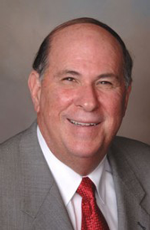Badger Nation, its administrators, players and fans, were shocked by the sudden resignation of Bret Bielema as head football coach of the University of Wisconsin. Bielema was hand-picked by his predecessor Barry Alvarez and compiled a 68-24 record (.739) in seven seasons, including three Big Ten titles. Bielema guided the Badgers to a bowl game in every season during his coaching tenure, and the team will be playing in the Rose Bowl for the third consecutive year after a lopsided 70-31 victory over Nebraska in the Big Ten Championship game. Speculation about why Bielema left Wisconsin for the University of Arkansas includes a more lucrative contract, a stronger conference, more money to hire assistants and a chance to win. As Al McGuire always would say, "Leave at the top of your game." Bielema's decision is representative of a business where turnover is commonplace, where long-term loyalty is not required and where the term of the contract is meaningless.
College Coaching Contracts
University of Illinois Assistant Coaches Controversy: A re-examination of Assistant Coaches’ Term of Contract
2011 was not a banner year for the University of Illinois football program. After starting with a 6-0 record, Illinois finished the season losing six straight games, making Illinois the first BCS team to open the regular season with six straight wins and closing with six straight losses. In November of 2011, acting athletic director Mike Thomas informed Ron Zook that he had been fired as head coach. Zook had five losing seasons at Illinois, finishing with an overall 34-51 record. Despite the end of the season losses and the firing of the head coach, Illinois was invited to the 2011 Kraft Fight Hunger Bowl and posted a 20-14 win over UCLA. The Illinois - UCLA contest was an interesting match-up since UCLA was given an NCAA waiver to compete despite a losing record, both schools fired their coaches, both schools were playing under interim leaders, and UCLA had four players ineligible for the game while Illinois had two players ineligible. But most noteworthy of all was a contentious legal and contract dispute between several of the Illinois assistant coaches (Joe Gilbert, Jeff Brohm and Chip Long) and the school administration.
Tattoogate Impacts Urban Meyer’s new OSU Contract
Tattoogate has had a profound effect upon the Jim Tressel era at Ohio State University (OSU). The NCAA Division 1 Committee on Infractions' ruling was announced on December 20, 2011, and included a one-year Bowl ban for the 2012 Bowl season, three years of probation from December 20, 2011 through December 19, 2014, the forfeiture of nine scholarships during the three-year probation period, and a finding that Jim Tressel had engaged in unethical conduct resulting in a show cause penalty of five years for committing violations, including lying to the NCAA and failing to report violations. The history and findings relative to Tattoogate can be found in my article entitled Tattoogate dated January 10, 2012. But Tattoogate has also impacted the contractual relations between OSU and its successor coach, Urban Meyer. Meyer executed an Employment Agreement with OSU on June 8, 2012. The contract is worth approximately $4.44 million per year over six seasons through the 2017 season. It includes retention bonuses in 2014, 2016 and 2018 for a total of $2.4 million
Take My Coach and I’ll Take You To Court
On March 26, 2008, Matt Brady became the men’s basketball coach at James Madison University (JMU). He was formerly the head coach at Marist College, compiling a 73-50 record in four years. Marist is a private institution located in Poughkeepsie, New York. Brady was employed pursuant to a head coaching contract with Marist that was entered into on July 1, 2007 and was to expire on March 31, 2011. Brady’s contract contained two covenants with respect to termination of employment that are the subject of this article. In the first instance, Brady was precluded from entering into any employment discussions with any other collegiate or professional basketball program and from accepting a head coaching position with any program without the prior written consent of Marist. In addition, if Brady’s contract was ultimately terminated for any reason, including Brady accepting another coaching position pursuant to such written consent, Brady agreed to (1) return all basketball program records and files, (2) end any and all contact with Marist basketball program recruits, and (3) not offer a scholarship to current Marist basketball players nor any persons that he or his staff recruited to play basketball at Marist.







